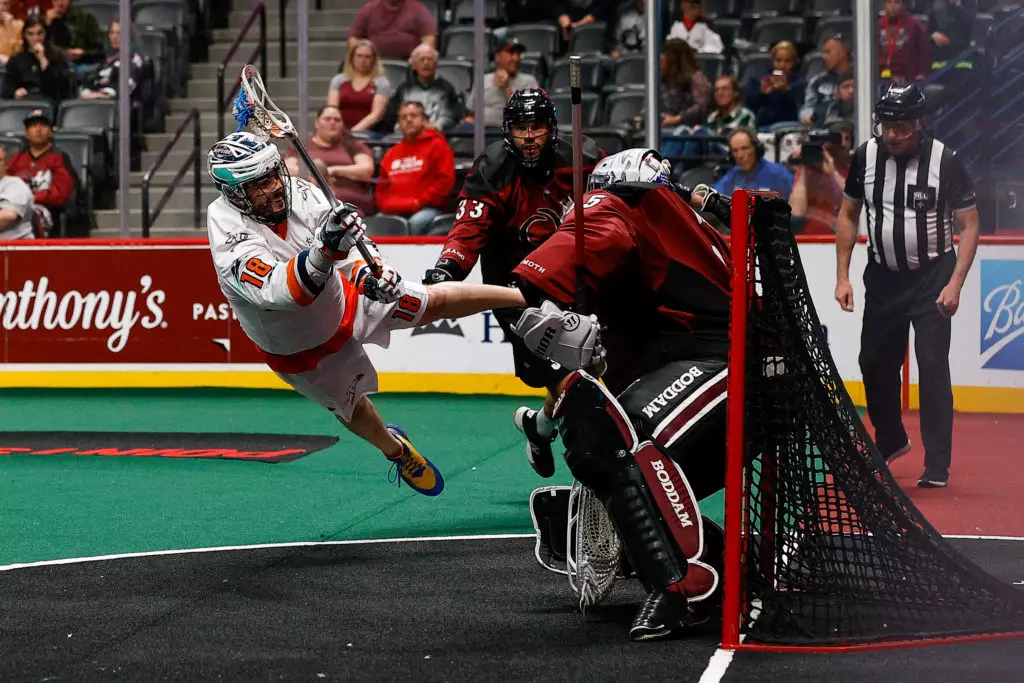
What initially started as a class assignment for Jake Fox while attending Johns Hopkins University quickly transformed into a deep desire to further learn about his Indigenous roots as a member of the Métis Nation. It also fueled a developing passion to educate others about the origins and symbolism of lacrosse within Indigenous communities.
In 2019, with the help of one of his professors, Fox crafted a rebuke of the World Game’s initial decision to exclude the Haudenosaunee Nationals at the World Games held in Birmingham this past summer. The Haudenosaunee were eventually allowed to play in the games after Team Ireland vacated their spot.
On their resume alone, the Haudenosaunee Nationals have proven their talent on the field of play to be included in any international competition. But, the deeper and more scaring wounds come from the sole fact that the world would not have lacrosse if it were not for the Indigenous people of North America.
Lacrosse is one of nine sports that have been invited by Los Angeles 2028 to present its case to be included at the Olympic Games. While the sport isn’t officially included, this is a real shot to get lacrosse on the biggest stage.
There are a lot of complexities of bureaucracy that complicate what seems to be a no-brainer decision for one of the best teams in the world. For reasons such as the Iroquois not being one of the 206 IOC-recognized National Olympic Committees because the fact that the IOC only recognizes a country’s National Olympic Committee if that country is recognized by more than half of the United Nations makes the fight for inclusion a real logistic challenge.
As Fox mentions in the published newsletter, the decision made by the hosting nations not to recognize the Haudenosaunee passports at the 2010 (in the United Kingdom) and 2018 (in Israel) World Lacrosse Championships – the team was later included in 2018 after last-ditch efforts by Canada and the United States were successful – the exclusion continued to express a narrative that the Haudenosaunee people were not equal to those from other nations.
Lacrosse is, and will forever be, an essential part of Indigenous culture. Lacrosse will continue to be a positive driving force within Indigenous communities for spiritual, emotional, and physical reasons that will never truly be understood by any other nation. Fox stated how being represented on the world stage and allowing Indigenous youth to observe the older generation gracefully excel at lacrosse has lasting impacts.
“As the sport grows, so does the grassroots movements,” Fox said. “A great way to grow the understanding of culture is through sport. The more we see [Indigenous] players come into the league, the more our communities surround the players, and the more kids want to start playing at a younger age.”
It should be noted that Fox did not have the same upbringing as other Métis people. He grew up in Ottawa, away from the reservation, but he has never wavered from wanting to be connected with his roots. Nevertheless, growing up as a member of the Métis Nation, where lacrosse is not as prominent compared to other Indigenous nations, Fox expressed the personal impact that being included in the World Games made on him.
Playing with the Haudenosaunee Nationals over the last two years has been a real learning experience for me,” Fox said. “From what I know growing up Métis, lacrosse is not a very dominant sport within the community. It’s something that can hopefully grow within the community.”
“Wherever you come from, when you get involved in the game, you get to meet people and learn about different communities and how lacrosse was brought to them. Sitting around and listening to Jeremy Thompson is one of the most interesting and fun things to do when we’re just sitting around as a team at [for example] the World Games. Listening to the elders makes you feel grateful to be there around them and learning from them.”
Fox’s words (written, spoken, and otherwise) have impacted Indigenous youth. Still, his continued actions keep his efforts to fight for equality and inclusion alive. Being Métis in Ottawa has provided Fox with many opportunities to grow the game. Whether on reservations or elsewhere, it is a region with plenty of lacrosse talent potential.
“There’s an ever-growing lacrosse community in and around Ottawa,” Fox said. “We’ve seen such growth of the game from Akwesasne and Kahnawake.”
It has been crucial for Fox to back up his words with decisive action. Among some of the many ways that Fox is doing his best to grow the game: he works with the Ottawa-Carleton District School Board to teach kids about the history of the game, how to play, and detailing what tools that are used to play lacrosse, he travels with the Ottawa Capitals as the program’s Director of Lacrosse Operations and is the Competitive Director for the Gloucester Minor Lacrosse Association.
Of course, this is on top of representing the Métis Nation as a member of the NLL’s New York Riptide. That is a lot of responsibility for a young man to bear, but that is how Fox wants to do his part.
“I want to do whatever I’m capable of to help the cause,” Fox said.
At the end of the day, Fox can only do so much to help his people earn representation at the Olympics or any other international competition. What he can do is, help his community be as successful as possible at lacrosse and be proud of what the game has done for Indigenous people for centuries.